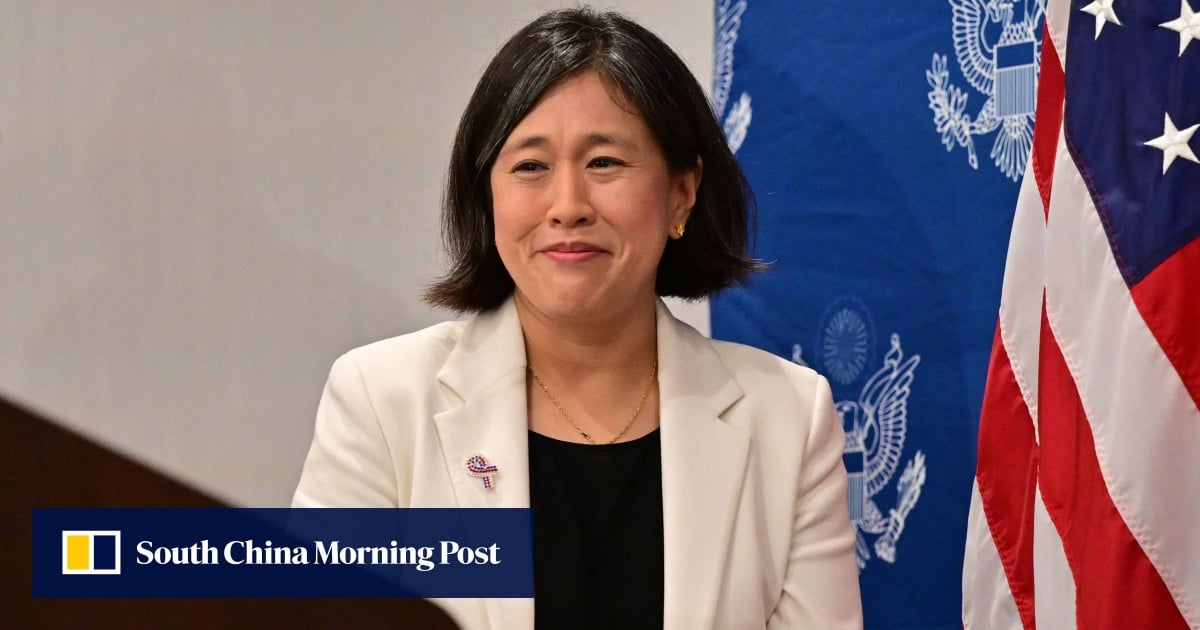“We are carefully reviewing the consultation request,” US Trade Representative Katherine Tai said in a statement. “Meanwhile, the PRC continues to use unfair, non-market policies and practices to undermine fair competition and pursue the dominance of the PRC’s manufacturers, both in the PRC and in global markets.”
The Chinese embassy in Washington did not immediately respond to a request for comment.
In its statement, the Office of the US Trade Representative did not mention EVs specifically – a growing area of tension between the two countries – but said the US mission in Geneva received word that China filed a WTO “consultation request” regarding “parts of the Inflation Reduction Act of 2022 and its implementing measures”.
Under WTO rules, if a member believes another member is violating a WTO agreement, it first initiates a consultation request identifying what agreements it believes have been violated.
This is followed by formal consultations between the two sides and, assuming no agreement is reached, a decision by a judicial panel, then implementation of the ruling and possible countermeasures if the losing side balks.
The US legislation aims to curb inflation, reduce the federal government budget deficit, lower prescription drug prices, invest in domestic energy production and promote clean energy. The Brookings Institution last year estimated the cost of the law, passed without a single Republican vote, at US$780 billion through 2031.
WTO faults Australian inquiry into trade dispute with China
WTO faults Australian inquiry into trade dispute with China
Tai defended the law, which she characterised on Tuesday as a “groundbreaking tool for the United States to seriously address the global climate crisis and invest in US economic competitiveness”.
China is not the only one to bridle over the law. The European Union, Japan, South Korea and others have voiced their opposition to the incentives extended to US companies under the act, which sets aside over US$350 billion for the transition to cleaner energy.
“Given their size and design, the financial incentives deployed to meet the US’s climate objectives unfairly tilt the playing field to the advantage of production and investment in the US,” the EU said in an official response in November, accusing the US of launching a damaging global subsidy “race to the bottom”.


